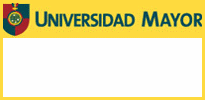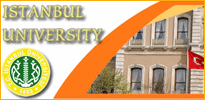Cape Verde: Cape Verde Education Profile 2012
2012/02/28
Cape Verde Education Profile 2012
Indeed, the average net primary school enrolment rate is about 88% for boys and 89% for girls in urban areas, and 90% for boys and 87% for girls in rural ones. Enrolment rates are also relatively high in pre-school (60%) and in secondary school (82% for boys and 89% for girls in urban areas, and 77% for boys and 81% for girls in rural ones). Some 8 000 students are enrolled in Cape Verdean universities (3 000 in the public university), while 6 000 are studying abroad, in part because some fields, such as medicine, are not taught in local universities.
Dropout rates are low in primary school (about 2%) and reach 8% in secondary school, while repetition rates for primary and secondary schools are about 10% and 25%, respectively. Literacy was 79.6% in 2007 but significantly lower for women than for men; among young people ages 15-24, literacy is 96% without significant differences based on gender or location.
Challenges for the education system in Cape Verde concern especially quality in pre-schooling and primary schooling. Only 20% of teachers are adequately trained in the former and 13% lack specific training in the latter. In tertiary schooling, the main challenge is to increase capacity. Since September 2009, French and English are both taught in all primary schools. Some primary and secondary schools are also experimenting with revised curricula and an evaluation of learning quality. The programme Mundo Novo (new world) aims to foster e-learning, and to assure Internet connectivity for all university and secondary school students, and for the majority of primary school pupils.
A considerable and stable share of GDP, about 7%, is devoted to education, mostly in primary schooling. There have been efforts to develop co-ordinated plans for education (accounting for 5.87% of the 2009 budget), employment and professional training (4.24%, financed by the Netherlands and Luxembourg) in order to address the mismatch between job skills and jobs vacancies and thereby increase employment. The first step consists of standardising diplomas and turning competences to account with a system of exams that certify practical skills. New programmes aim at addressing the lack of intermediate qualified workers by strengthening secondary education with professional training in hotel, banking, and renewable energy sectors.
Primary school education in Cape Verde is mandatory between the ages of 6 and 14 years and free for children ages 6 to 12.
In 1997, the gross primary enrollment rate was 148.8 percent. While enrollment rates indicate a level of commitment to education, they do not always reflect children’s participation in school. Textbooks have been made available to 90 percent of school children, and 83 percent of the teachers have attended in-service teacher training. Although most children have access to education, some problems remain. For example, many students and some teachers speak Creole at home and have a poor command of Portuguese (the language of instruction).
Visitors from China's Jiaotong University Welcomed to Campus Pictured below is BSC President Dana Mohler- Faria , Vice President Edward Minnock, School of Arts and Sciences Acting Dean Dr. Rita Miller, and Dr. Wing-Kai To at a luncheon with visitors from Jiaotong University. Since last year, Jiaotong University has been a partner with Bridgewater and currently there are five students from the university studying at BSC. Also three professors from Jiaotong University came to Bridgewater last February for research and teaching. Two of those professors remain here .In June BSC will be sponsoring a three week study tour to Jiaotong University .
- Cape Verde News
-
- CHINA: Macau businessman wants to take companies from China to Cabo Verde
- BOTSWANA: Routes Africa forum aims to improve African air connectivity
- BOTSWANA: Economic integration is helping boost trade and investment in Africa
- BOTSWANA: Africa’s economic growth is likely to be slower in the intervening years
- BOTSWANA: Beyond Commodities: How African Multinationals Are Transforming
- CAPE VERDE: Standard & Poor’s said Cabo Verde’s reputation as one of the most stable countries in Africa
- Trending Articles
-
- GHANA: Ghana steps up to secure electricity supply
- GABON: Gabon moves to solve housing deficit
- TUNISIA: Tunisia augments ICT exports and connectivity
- TANZANIA: Tanzania Breweries now partners with traditional liquor outlet owners
- SOUTH AFRICA: South Africa to extend ICT reach
- UKRAINE: Public debt for housing and utilities services in February up by 1% to Hr 13.5 billion






.gif?1356023993)






